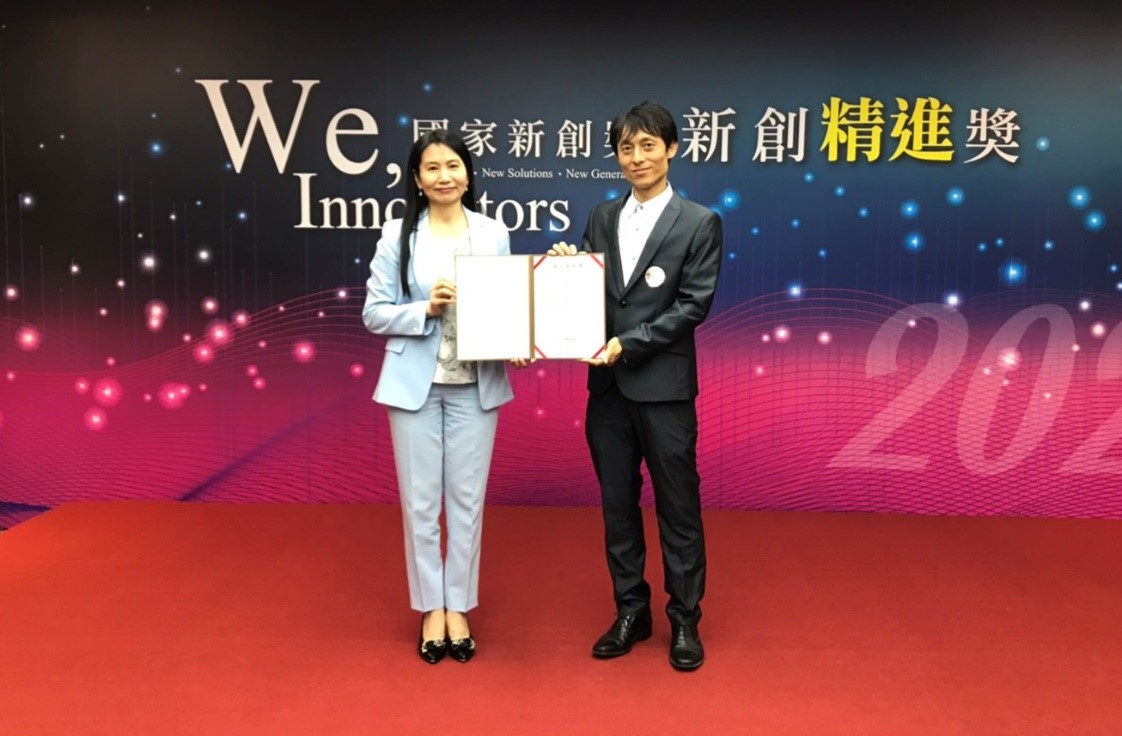Generic Abstract
The Molecular Imaging and Nanotechnology Laboratory at the University of Wisconsin - Madison (http://mi.wisc.edu/) is mainly focused on three areas: 1) development of multimodality molecular imaging agents; 2) nanotechnology and its biomedical applications; and 3) molecular therapy of cancer.
In this talk, I will present our recent work on molecular imaging and image-guided drug delivery of cancer and some cardiovascular diseases with peptides, proteins, and a variety of nanomaterials. The primary imaging techniques used in these studies are positron emission tomography (PET), photoacoustic tomography (PAT), optical imaging, and magnetic resonance imaging (MRI). Some of the major molecular targets that we are investigating are CD105 (i.e. endoglin), PD-1/PD-L1, CTLA-4, VEGFR, CD146, integrin αvβ3, among others. The nanomaterials that will be discussed in this presentation may include silica-based nanoparticles, nano-graphene oxide, micelles, iron oxide nanoparticles, 2-D nanomaterials, hybrid nanomaterials, among many others. Lastly, the emerging paradigm of intrinsically radiolabeled nanomaterials will be discussed as multi-modal PET/MRI, PET/PAT imaging agents, as well as for theranostic applications.
Weibo Cai, Ph. D.
Associate Professor (Tenure),Vilas Distinguished Achievement Professor
Departments of Radiology, Medical Physics, Biomedical Engineering, Materials Science & Engineering, Pharmaceutical Sciences (Drug Delivery Core),University of Wisconsin – Madison

Prof. Weibo Cai received a BS degree in Chemistry from Nanjing University, China (1995) and a PhD degree in Chemistry from the University of California, San Diego (2004). Between 2005 and 2008, Dr. Cai did his post-doctoral research at the Molecular Imaging Program at Stanford (MIPS). In February 2008, Dr. Cai joined the University of Wisconsin - Madison as a Biomedical Engineering Cluster Hire, and was promoted to Associate Professor (with Tenure) in 2014. Dr. Cai is currently affiliated with the Departments of Radiology, Medical Physics, Biomedical Engineering, Materials Science & Engineering, and Pharmaceutical Sciences.
Dr. Cai’s research at UW-Madison (http://mi.wisc.edu/) is primarily focused on molecular imaging and nanotechnology. He has authored >230 peer-reviewed articles (total citation: > 15,000; H-index: >60), edited 3 books, given >180 talks, participated in many grant review panels (NIH, DOD, NSF, Cancer Prevention and Research Institute of Texas [CPRIT], Susan G. Komen, European Research Council, Canadian Cancer Society, etc.), and served on the Editorial Board of >20 scientific journals (e.g. Theranostics, Journal of Nuclear Medicine, European Journal of Nuclear Medicine and Molecular Imaging, Scientific Reports, Molecular Pharmaceutics,American Journal of Cancer Research, American Journal of Translational Research, etc.). Dr. Cai has received many awards, including the Society of Nuclear Medicine and Molecular Imaging (SNMMI) Young Professionals Committee Best Basic Science Award (2007), the European Association of Nuclear Medicine (EANM) Springer Prize (2011 & 2013), American Cancer Society Research Scholar (2013-2017), NIH R01, Vilas Distinguished Achievement professorship Award, among many others. What he is mostly proud of is that his trainees at UW - Madison have received ~80 awards, such as the 2012 Berson-Yalow Award from SNMMI.
個人簡歷
蔡偉波博士現任美國威斯康辛大學麥迪森分校(University of Wisconsin - Madison)放射學系、醫學物理學系、生物醫學工程系、材料科學與工程系及藥學系副教授(終身教職),被授予Vilas傑出成就教授。主要從事分子影像及生物納米科技的研究(網站:http://mi.wisc.edu)。1995年畢業于南京大學強化部(化學專業),2004年於美國加州大學聖地牙哥分校(UCSD)獲化學博士學位。2005年至2008年在美國斯坦福大學分子影像中心從事博士後研究。
蔡偉波教授已發表學術論文230餘篇(包括第一和(共同)通訊作者的Nature Nanotechnology, PNAS, Accounts of Chemical Research, Advanced Materials, Journal of the American Chemical Society, Angewandte Chemie, Advanced Drug Delivery Reviews,Nano Letters, Nano Today, ACS Nano, Cancer Research, Diabetes, Clinical Cancer Research, Nature Protocols, Stroke, Small, Biomaterials, Theranostics, Journal of Nuclear Medicine, European Journal of Nuclear Medicine and Molecular Imaging, 等)。論文被引用15000餘次,H-index超過60 (Google Scholar:https://scholar.google.com/citations?hl=en&user=-5N2yIAAAAAJ)。同時,出版3本學術專著(包括Springer和CRC Press),已受邀作180多個學術口頭報告, 並參與美國NIH/DOD/NSF/CPRIT/Komen的科研基金評審及諸多其他國家(包括加拿大,中國及歐洲十幾個國家)的科研基金評審。蔡偉波教授是American Journal of Nuclear Medicine and Molecular Imaging (AJNMMI,美國核醫學與分子影像雜誌,http://www.ajnmmi.us) 的共同主編。AJNMMI 於2011年創刊,目前被PubMed 和 Emerging Sources Citation Index (ESCI) 全文收錄。
蔡偉波教授已獲得了諸多學術獎勵,包括美國核醫學與分子影像學會(SNMMI)青年學術委員會最佳基礎科學研究獎(2007年),歐洲核醫學學會(EANM)斯普林格獎(2011年和2013年),美國癌症學會研究學者獎(2013-2017年),歐洲核醫學學會年會全會報告嘉賓 (Plenary Lecturer,2016年),威斯康辛大學Vilas Distinguished Achievement Professorship 獎 (2017年) 等。同時,蔡偉波教授先後擔任20餘個學術期刊編委(包括Theranostics, Journal of Nuclear Medicine, European Journal of Nuclear Medicine and Molecular Imaging, Scientific Reports, Molecular Pharmaceutics,American Journal of Cancer Research, American Journal of Translational Research, 等)。蔡偉波教授所指導的本科生,博士生和博士後已經累計獲得80余項學術獎勵,其中包括SNMMI Berson-Yalow獎(2012年),歐洲核醫學學會 Eckert & Ziegler 最佳摘要獎(2015年), 多人獲得SNMMI 青年學者獎,及多人獲得中美核醫學及分子影像學會(CASNMMI)青年學者獎等。
